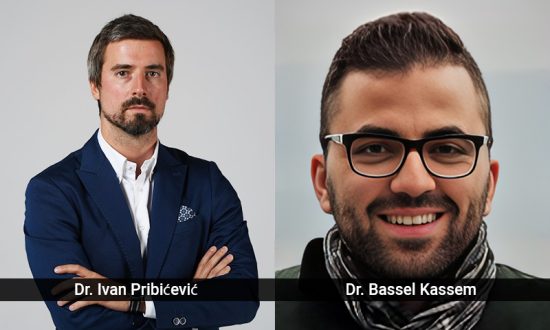The higher education sector has long taken a rigorous pathway of knowledge development that relies mainly on theory and traditional pedagogy. This approach constituted the cornerstone of education, shaping students and forming specialized generations in specific fields. However, the landscape faces a significant challenge represented by the ever-enlarged gap between academic and industry practice. This gap is two-sided as one side relates to the lack of implementation of scientific research into business, and the other side relates to learning about business outcomes that came without any scientific research. Here, we are addressing the second one. This gap necessitates immediate action to bridge this divide effectively. Thus, the education landscape is constrained to seek innovative ways to help students, mainly undergraduates, face the complexities of their future careers.
Institutions encourage outside-the-box thinking when conducting face-to-face lectures to face such challenges. One innovative approach is inviting industry professionals and stakeholders to the class, leveraging game-based learning and hands-on lectures. This approach would enhance student engagement and motivation and offer a dynamic platform for exposing students to real-world industry scenarios before graduation.
An example of this is the result of a joint effort between two scholars coming together to set a new tone in Operations Management courses. We are scholars with consultancy backgrounds, and we tried to redefine lecture delivery for Agile and Lean Management topics. Recognizing the need to revamp the academic landscape one step at a time, lego-based lectures were set in place to replace the old face-to-face lectures.
Agile Management and Lego
In teaching Agile management, LEGO simulations emphasize the concepts of iterative development, teamwork, and adaptive planning. Students were divided into teams and asked to build a specific LEGO structure, the city of Dubai, within set timeframes, mimicking the sprints in Agile methodology. This hands-on activity reinforces the Agile principles of collaboration and flexibility and emphasizes the importance of iterative feedback and continuous improvement.
Lean Principles through Process Simulation
Similarly, Lean principles, which focus on maximizing value while minimizing waste, are taught through targeted production exercises. Students were divided into teams, where they experienced push, pull, and improvised production processes to help them grasp the basic concepts of Lead time, cycle time, WIP, and waste. This playful yet profound approach enables students to fully grasp these principles and understand their application in real-world scenarios.
The collaboration between professors with industry backgrounds enriches the learning experience. Students get to witness a sense of the industry prior to graduation, gain a wealth of practice-based knowledge, apply theoretical concepts, and, most importantly, have an enjoyable experience!
This is one of the many initiatives fellow scholars could benefit from and learn from to integrate a forward-thinking approach in education. The gap is still there, but with one collaboration at a time, we could potentially keep up with the industry and switch from traditional teaching methods to more inclusive ones.
About the Authors
Dr. Bassel Kassem, an Assistant Professor of Management at the American University in the Emirates
Dr. Bassel Kassem is an Assistant Professor of Management and is currently the Director of Innovation, Patents, and Grants at the American University in the Emirates AUE. His academic journey from Milan, at Politecnico di Milano, to Dubai, coupled with his consultancy experience in continuous improvement projects, shaped his beliefs in rethinking the status quo in teaching methods. He tries to integrate innovative methods in Operations and Supply Chain Management and was awarded the Excellence in Innovative Teaching award at AUE.
Dr. Ivan Pribićević, Founder and CEO of Simplify Consulting
Professor Ivan Pribićević, Ph.D., earned his doctorate from the Faculty of Organizational Sciences in Belgrade. He is a certified Lean Six Sigma Black Belt (TLSSC) and a trainer for IATF 16949:2016 by TÜV SÜD. He collaborated with over 500 companies across 17 countries. Since 2012, he has been a member of the Serbian Association of Managers and was awarded the “Young Manager of the Year” award in 2020. His publications focus on strategic management, quality management, and education systems. Since 2018, he has been the founder and CEO of Simplify and a co-owner of Voltic Global and Adriatic Spirits.




